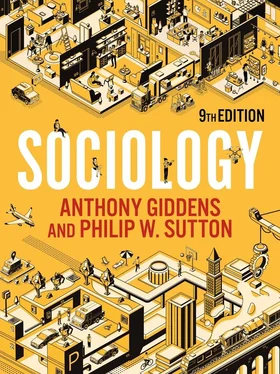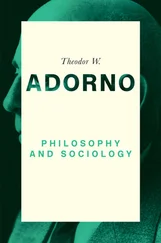The Puritan wanted to work in a calling; we are forced to do so … Since asceticism undertook to remodel the world and to work out its ideals in the world, material goods have gained an increasingly and finally an inexorable power over the lives of men as at no previous period in history…. The idea of duty in one’s calling prowls about in our lives like the ghost of dead religious beliefs.
Weber’s theory has been criticized from many standpoints. Some have argued that ‘the spirit of capitalism’ can be seen in early Italian merchant cities of the twelfth century, long before Calvinism. Others claim that the idea of ‘working in a vocation’, which Weber associated with Protestantism, already existed within Catholic beliefs. Yet the essentials of Weber’s account are accepted by many and the thesis he advanced remains bold and illuminating. If Weber’s thesis is valid, then modern economic and social development has been decisively influenced by something that seems utterly distant from it – a set of religious ideals.
Weber’s theory also meets important criteria for theoretical thinking in sociology. First, it suggests an interpretation that breaks with common sense and develops a fresh perspective on an issue. Most scholars before Weber gave little thought to possible links between religious ideas and the origins of capitalism. Second, the theory makes sense of something that is otherwise puzzling: why would individuals want to live frugally while making great efforts to accumulate wealth? Third, the theory sheds light on circumstances beyond those it was created to explain. Weber tried to grasp the origins of modern capitalism, but it seems reasonable to suppose that parallel values could be part of societies which became capitalist much later. Finally, a good theory is not just valid but also fruitful in generating new ideas and stimulating further research. Weber’s theory has been highly successful in all these respects, providing the springboard for a large amount of research and theoretical analysis. Weber’s approach to sociology was also an important stimulus to many later theories which place human actors at the centre of their analyses, and we look at some of these in the next section.
Many students (and their teachers) find Weber’s theory of the religious origins of capitalism endlessly fascinating. But how, if at all, is it relevant to our understanding of the operation of global consumer capitalism today?
Symbolic interactionism, phenomenology and ethnomethodology
This section moves on to outline some important perspectives that put human actors and social interaction at the centre of the analysis. A significant early exponent of this perspective is Georg Simmel (1858–1918), often described as the ‘first sociologist of modernity’, on account of his work on the experience of modern city life (discussed in chapter 13, ‘Cities and Urban Life’). Simmel saw sociology as a discipline concerned primarily with the different forms of social interactions, or ‘sociation’ (Frisby 2002). His broadly interactionist ideas influenced the work of many peers and future sociologists. This section looks at some key ideas from symbolic interactionism, phenomenology and ethnomethodology. Although there are important differences between them, as a group they contrast with the structural theories in sociology we have looked at so far.
George Herbert Mead (1863–1931) is credited with laying the foundations for an approach known as symbolic interactionism , a general label covering approaches that investigate social interactions with a focus on language and symbols. Interactionists often reject the very idea that social structures exist objectively, and they do not focus on them in their work. Herbert Blumer (who coined the term ‘symbolic interactionism’) argued that all talk of social structures or social systems is unjustified, as only individuals and their interactions can really be said to ‘exist’ at all.
Symbolic interactionism focuses on micro-level interactions and the ways in which meanings are constructed and transmitted. Mead (1934) argued that the individual person is in fact a social self, produced during interaction processes rather than being biologically given. His theory traces the emergence and development of the self through a series of stages in childhood, and his ideas of the social self underpin much interactionist research (see chapter 14, ‘The Life Course’, for a detailed discussion of Mead’s ideas). Recognizing that humans use symbols in communication is a basic premise of the approach.
A symbol is something that refers to or stands for something else, so words, gestures or objects can all be used to convey meaning during interactions. However, the same symbol can convey different meanings, even in the same setting. A wedding ring, for instance, may be interpreted by one person as a sign of love and commitment but by their spouse as signifying a loss of freedom. The symbolic character of human communication marks it out as different from most animal behaviour, which involves responses to objective stimuli. Human interactions are not simply automatic behavioural responses but involve symbols in the creation of meaning.
The centre of symbolic interactionism for some thirty years until 1950 was the University of Chicago’s Department of Sociology (known as the Chicago School), though by no means all Chicago sociologists were interactionists. The department was also home to the ‘ecological’ approach of Louis Wirth, Robert E. Park and Ernest Burgess (see chapter 13, ‘Cities and Urban Life’, for a discussion of this approach). Nonetheless, having an institutional base was important in popularizing the approach.
Arguably, the most successful symbolic interactionist is Erving Goffman (1922–82). Goffman’s studies of mental ‘asylums’, processes of stigmatization and the ways in which people present their selves in social encounters have become sociological classics, as much for their methodology and observational style as for their findings. In developing his ‘dramaturgical analysis’, which works with the metaphor of the theatre, Goffman has had a wide influence on sociology students across the world.

Meeting people is a normal occurrence, but interactionists are fascinated by the rituals and unspoken assumptions in play during such an everyday phenomenon.

See chapter 12, ‘Social Interaction and Daily Life’, for a discussion of Goffman’s perspective.
Phenomenology is an actor-centred perspective which deals with the ways in which social life is actually experienced. Literally, phenomenology is the systematic study of phenomena – things as they appear in our experience. Its roots in sociology lie in the philosophical work of the German philosopher Edmund Husserl, though in sociological research the Austrianborn philosopher and sociologist Alfred Schutz (1899–1959) has been more important. Schutz concentrated on people’s experience of everyday life and the ways in which this comes to be ‘taken for granted’ as part of the lifeworld – the world as routinely experienced and lived as ‘natural’. Schutz refers to this routine acceptance of the world as adopting a ‘natural attitude’. For him, the task of phenomenological sociology is to understand better how this happens and what its consequences are.
Schutz was interested in typifications – the ways in which experienced phenomena are classified according to previous experience. Typification is commonplace. When we meet someone we perhaps think, ‘Oh, so she’s that kind of person’, or ‘He seems an honest type’. Typification helps to order our world and make it more predictable and therefore ‘safe’. But if this becomes stereotypification it can also be dangerous – the illegitimate generalization about people based simply on their membership of a certain social group. Examples of stereotyping are racism, sexism and negative attitudes towards disabled people. However, the focus of Schutz’s work was on the ways in which these interaction processes produce typifications, not the positive or negative consequences of the latter.
Читать дальше














